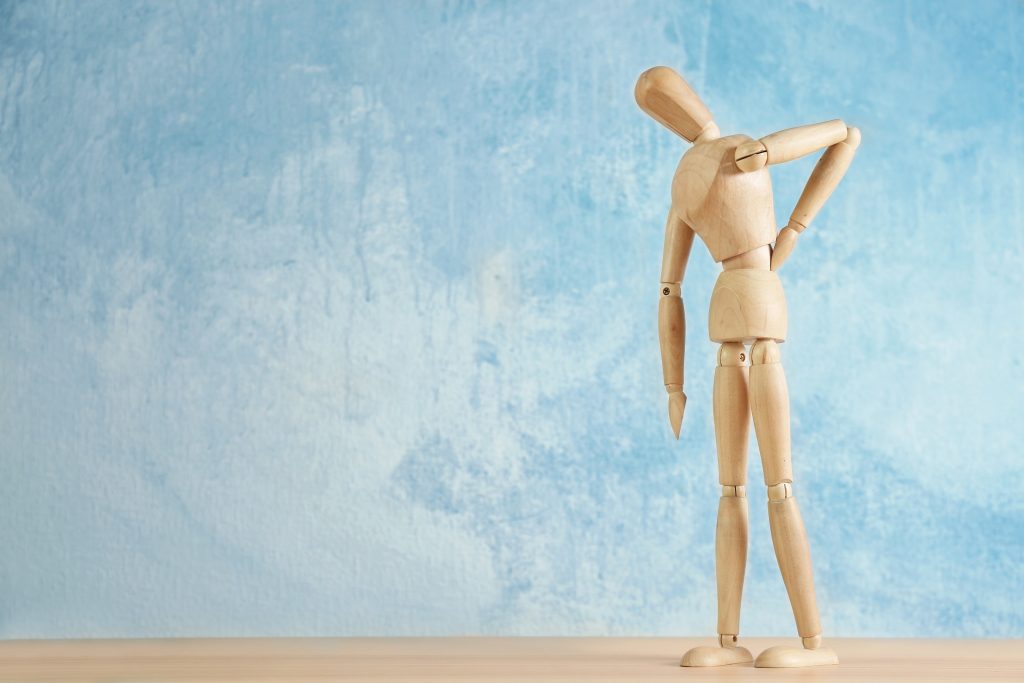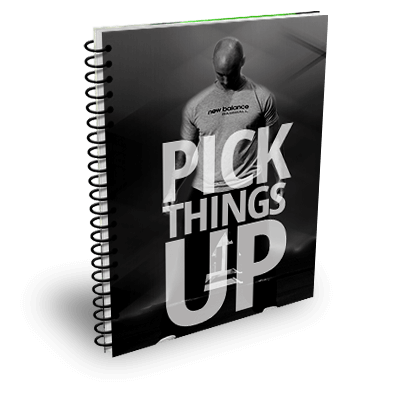The Hard Truth About Back Pain
Happy Labor Day to my American readers.
Happy Monday to everyone else…;o)
Today’s guest post comes courtesy of TG.com regular, Shane McLean. Most will be able to commiserate because it deals with an annoying topic most of us are very familiar with: Cross-Fitters low-back pain.
We can seemingly do everything perfectly – lift with impeccable form, do our mobility work, even do an extra set or two of deadbugs & birddogs – and yet still be clotheslined by a bout of back pain.
It stinks no matter which way you look at it.
But it’s not a death sentence.

Copyright: belchonock
The Hard Truth About Back Pain
Google back pain and you come up with about 1,550,000,000 results.1 There’s no shortage of information about back pain, the symptoms, the different types, how to treat it and how to prevent it. When you’re suffering from back pain, it’s easy to be overwhelmed with all this info.
Plus, not to mention all the conflicting advice because various treatments and exercises work for different people. What worked for me might not work for you. Pain and healing are highly individual things, I think.
Back pain causes loss of income, loss of mobility, stress, large medical bills and costs employers big money because of sick leave, health insurance etc.
Back pain is a big deal, no doubt.
You can do all the right things, diet, exercise and move right but back pain doesn’t care. It can rear its ugly head at any time you move suddenly, bend down to pick something up off the floor or when you’re wrestling with your kid.
Then you’re in a world of hurt.
There’s a school of thought that suggests back pain is preventable if you strengthen your core, have good posture, get strong and not sit or stand too much. But back pain doesn’t care. You control what you can control and let the chips fall where they may.
Truth About My Back Pain
The truth about my back pain is it was my fault.
See, I love to deadlift, but I was doing it all wrong. Rounding the lower back while pulling a barbell from the floor repeatedly is NOT a recipe for a healthy spine. Eventually something had to give. And it did.
Around nine years ago I felt a ‘snap’ in my lower back and didn’t think anything of it. Some low-grade pain around my lower back and I ignored it like any gym meathead would, hoping over time the pain would go away.
But the more I ignored it, the worse it became, to the point where lifting, playing with my kids and sleeping didn’t happen. The pain had taken over my life and it was all-consuming. To cut the world’s smallest violin story short, I had three herniated disks.
Now the disks have healed but my pain has not. More on that later.
When You’re In Pain
If you’ve ever put your back out, you’re probably thinking you’re the only one who’s suffering (because pain is all-consuming) but this is not the case. 80% of the population of the US, at some point will suffer from chronic or acute back pain.
And about 2% to 10% of people who experience low back pain develop chronic back pain.
A lot of people choose to go under the knife to fix this because of their doctor’s recommendation, but this doesn’t always work, as shown here. Plus, I’ve encountered many people who have had multiple back surgeries and they’re still in tremendous pain and their quality-of-life sucks.
Sometimes the solution causes more problems.
Get Back On The Horse
You’ve heard the saying ‘get back on the horse’ when you’ve been knocked down.
Get up, dust yourself off and go again.
You cannot change what happened. Dwell on it, yes but you cannot change it. Better to wipe the slate clean and go again. And this is usually great advice but for back pain it’s a little different.
The countless times I’ve come back to the deadlift after injury there’s a real fear, I’ll do it again. The more I focus on correct form and set up doesn’t make this fear go away. But this fear is a two-way street. It forces me to do it right, which is a good thing.
But I lose confidence in my body to perform because of this fear and this is a bad thing. You may think this is mumbo-jumbo, but injuries have both physical and psychological consequences, and a common post injury response is elevated fear of re-injury. (1)
The loss of confidence is real and is a little talked about consequence when coming back from an injury.
Another ‘Truth’ About Back Pain
This is a case study of N=1 (me) and my experience with back pain and training clients with back pain. Barring lower back strains and waking up on the wrong side of the bed, once you’ve damaged your spine, like herniated disks the pain doesn’t magically go away.
The injury may have healed but the pain remains.
In the case of herniated disks, the fluid that leaks out between the disks which causes the nerve pain and discomfort gets dissolved by the body over time. Then there’s nothing pressing up against the nerve so the pain should all go away, correct?
I’ve suffered from low-grade (1-2 out 10 on the pain scale) and extreme lower back pain (5-7 out of 10) almost daily for the past nine years. Granted it’s not the same level of pain generated by a herniated disk and it’s not constant, but it’s still pain.
Low grade back pain doesn’t stop me from training, but it does make me more aware of my set up and form. It makes me more conscious of my posture and daily movements too and this is all positive. Extreme back pain almost puts me on the ground.
This is not.
After surgery, rehab, Physical Therapy or Chiropractic care for back aliments, the severe pain may go away but the discomfort may haunt you like Casper the friendly ghost.
Wrapping Up
Back pain, whatever form it takes, sucks.
You lose confidence in your ability to perform everyday movements and fear re-injury. But it does make you aware of taking good care of it. Because if you don’t, your back will tell you in no uncertain terms.
Note From TG: As an adjunct to Shane’s sage words, I’d highly recommend reading THIS article I wrote recently on why training with pain present is an inevitable (if not important) part of the healing process.
About the Author
Shane “Balance Guy’ McLean” is an A.C.E Certified Personal Trainer working deep in the heart of Louisiana with the gators.
References
- Chao-Jung Hsu et al. Fear of Reinjury in Athletes. Sports Health Mar/Apr 2017;9(2):162-167. doi: 10.1177/1941738116666813. Epub 2016 Sep 20.



Comments for This Entry
Best Fitness Articles From The Previous Week: September 12 2021 -
[…] The Hard Truth About Back Pain: Courtesy of Shane McClean on […]September 9, 2021 at 9:57 am |
T. Mahesh
I remember having seen you first in T-Nation and then maybe in Men's Heath and since then considered you as a legend on deadlifting. But doing deadlifts with nine years of back pain, not to mention coaching people - is something extraordinary ! My hats off to you. Hope the pain vanishes and never returns !September 12, 2021 at 9:07 am |
Tony Author
Thanks for reading the article! However, it was a guest post, via Shane McLean...I didn't write it. But I'll take any kudos I can muster!September 13, 2021 at 9:18 am |